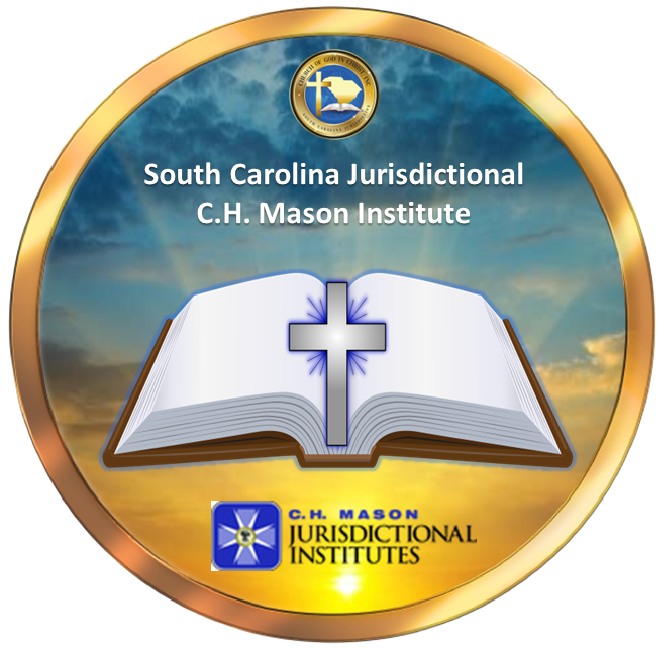This course is a basic overview to effectively teach students for ordination within the Church Of God In Christ, the well-defined structure of the church, as it is an ecclesiastical order. Students will be taught the system and government that controls the church: Polity.
GENERAL OVERVIEW
The course will provide information allows students to gain knowledge of the standardized curriculum that will enable them to function successively in their respective office. The discipline of the church must be studied and interpreted according to doctrine, as it will provide students a guide in performance of ministry at every level. This course is designed to inform and strengthen the ability and confidence of the candidate working toward ordination in the organized Church Of God In Christ.
COURSE OBJECTIVES
The intentions of this course are:
• Student will define key terms as related to the Church Of God In Christ.
• Student will explain the function of the General Assembly.
• Student will list the tier of authority in the church.
• Student will explain each key terms and tell its function in the Church Of God In Christ.
• Student will be fully aware of the titles, responsibilities, and functions of all credential holders.
• Students will explain the difference between an Episcopal, Congregational, and Presbyterian structure of church operation.
• Students will name the general officers of the Church Of God In Christ.
• Students will list the names of the General Board Members (in order of rank).
• Students will list the ecclesiastical position in Church Of God In Christ Episcopacy.
COURSE TEXT(S) AND RESOURCES (MATERIALS)
1) COGIC Manual
2) COGIC Standardized Ordination Curriculum
3) Bible – King James Version only needed as textbook (optional-other versions may be used by student) Optional Resources
4) Dictionary
5) Optional–Concordance and other study helps as needed
COURSE POLICIES
The instructor will adhere to all C. H. Mason Jurisdiction Institute policies pertaining to attendance, make-up tests, auditing, etc. Students are expected to be familiar with these policies. Any absenteeism, late assignments, etc. must be cleared (in advance) with the instructor. Where attendance is expected you must be present for at least 90% of the class to be counted as present. You are allowed (2) two absences. It is extremely important for you to attend class, stay current with the material, and actively participate to benefit from this course. You will be responsible for and tested on both the text and lecture material. If miss a class, it is your responsibility to request and obtain information/material given (e.g., announcements, notes, schedule modifications, etc.) from a classmate. In addition, class sessions may not be photographed, audio, or video recorded by student(s). Technology may only be used for note taking and course related activities during class. Students violating this will be dismissed from class. If you require an exception/accommodation regarding use of technology, please discuss your situation with your instruction who will present to the Dean for approval.
COURSE PROCEDURE
This course will be taught using multiple instructional methods, primarily virtual conference lectures. Virtual conference lectures will be used to introduce important topics and highlight specific content within each chapter. Additional instructional methods will include lecture with PowerPoint, case study with group discussion, oral presentation with an associated critical discussion/real-time application, and video discussion. Typically, chapters will be introduced via lecture format and incorporate interpretive discussions. Following the lecture presentation, students will complete homework and engage in further study online using the primary literature to further illustrate the topic and expand learning.
Typical class outline:
• Announcements with students (Question and Answers-Q&A)
• Chapter/Lesson Introduction
• Lecture/Video
• Student Participation – Discussion
• Lecture/Video
• Student Participation – Discussion
• Announcements, Reminders, Student Q & A, and Student Assignment
Lectures will be presented by PowerPoint; student interactions may be focused in one-on-one or small group discussions. *Assignments will be delivered and completed online. Lectures are geared toward real-time application of personnel, organization, and supervision.
ASSIGNMENTS AND COURSE PREPARATION
Successfully students usually devote a minimum of (8) eight hours per week to study and prepare. Readiness to learn means that you are prepared to discuss the content, its practical relevance and real-time application. I have found that successful students:
• Read assigned material before class.
• Actively participate in class discussion, and other relevant thought-provoking questions.
• Review online content prior to completing assignments.
Use the schema below to interpret point’s calculation for assignments.





